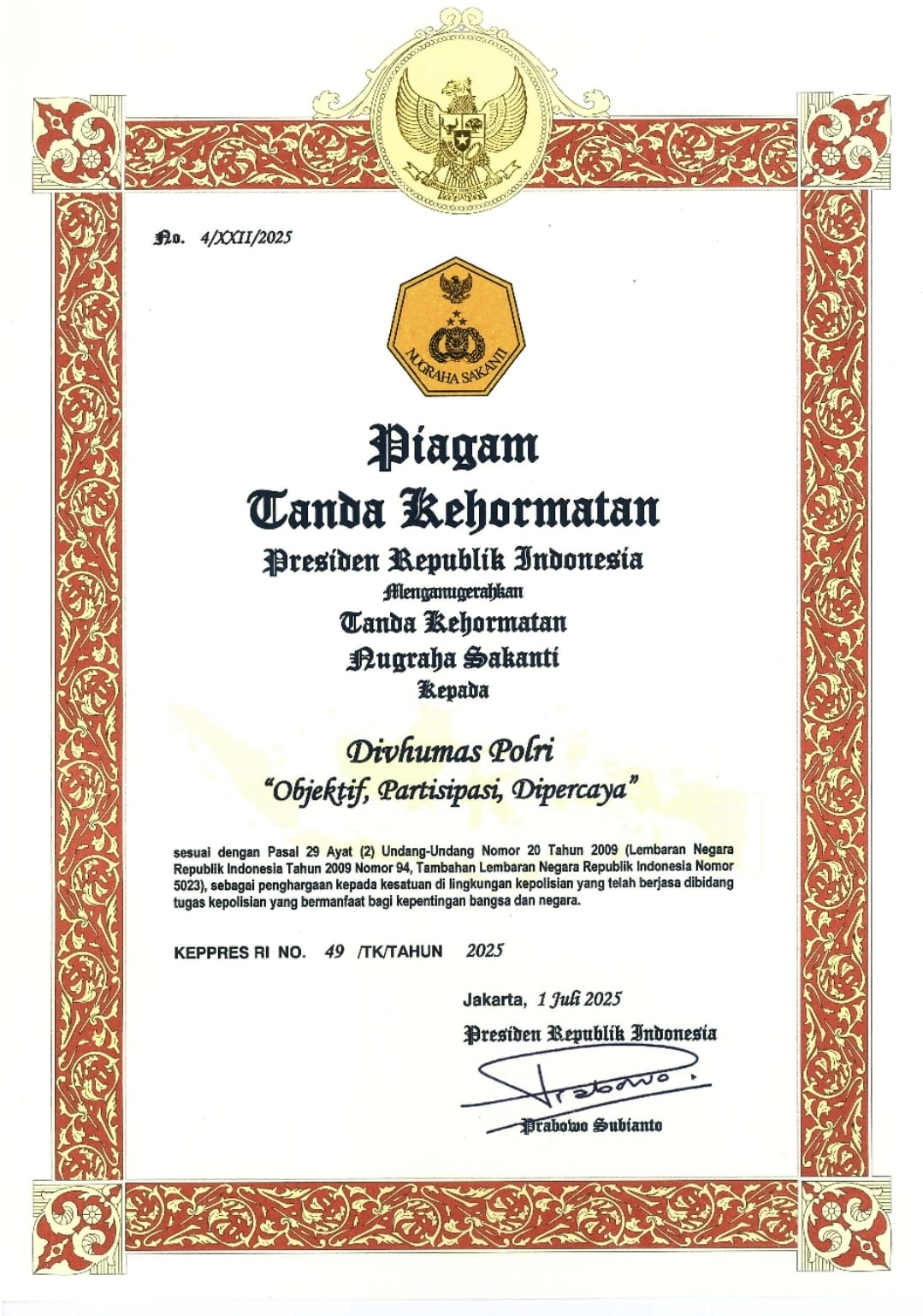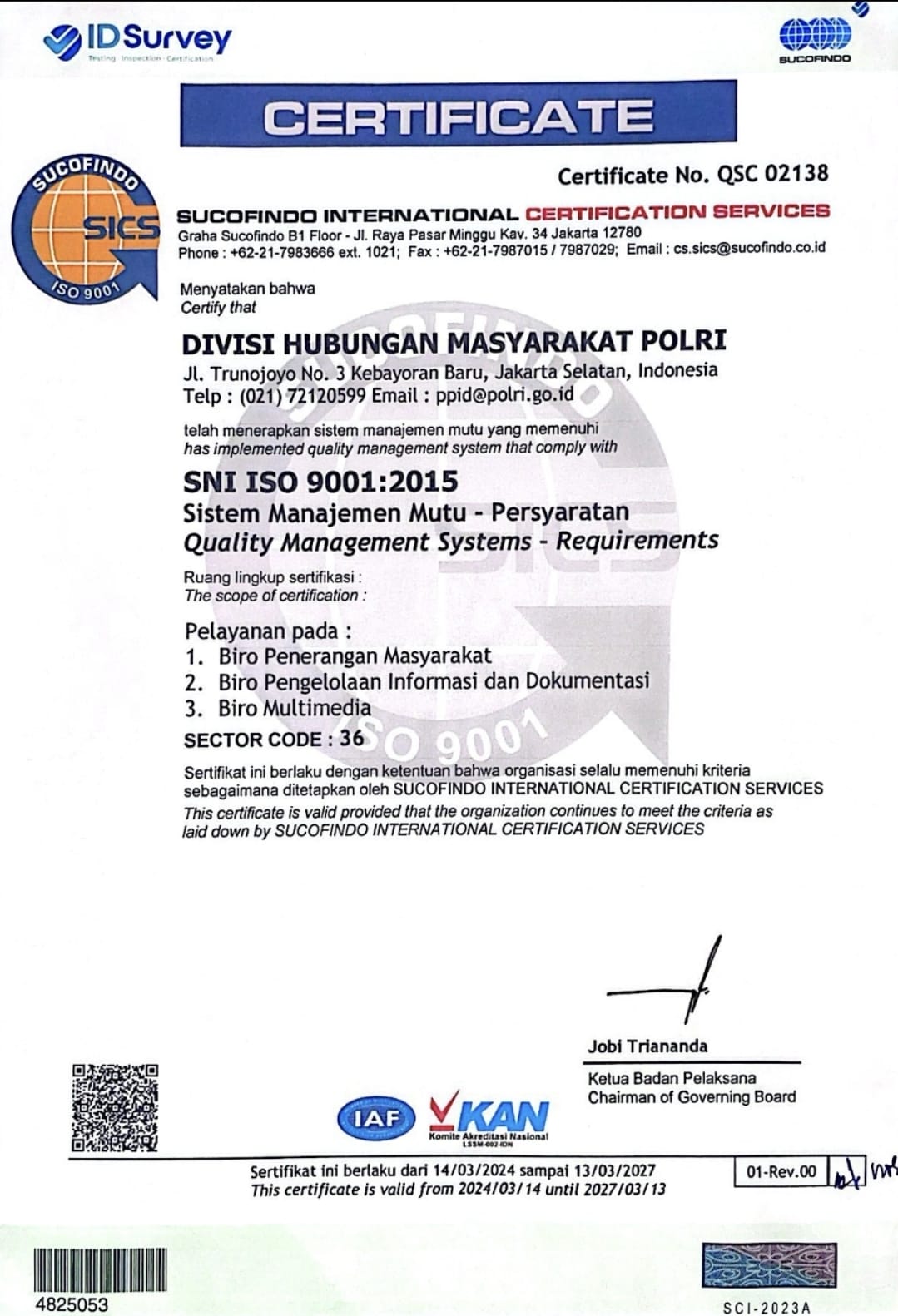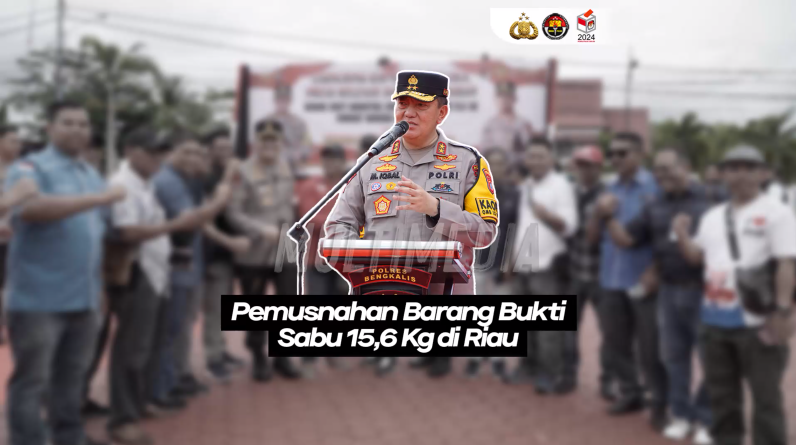Tribratanews.polri.go.id – Jakarta. Chief of Police, Police General Listyo Sigit Prabowo; Attorney General, ST Burhanuddin; and Minister of Communication and Information Technology, Johnny G. Plate, officially signed the Joint Decree of ITE (Information and Electronic Transactions) Law Implementation Guidance.
The signing was also witnessed by Coordinating Ministry of Politics, Law, and Security, Mahfud M.D., in his office in Central Jakarta, Wednesday (23/6/2021).
"Yes. Moments ago, Chief of Police, Attorney General, and Ministry of Communication and Informatics (was signing the documents) and witnessed by the Coordinating Ministry of Politics, Law, and Security", Chief of PR and Press Division of Indonesian National Police, Inspector General Argo Yuwono, in Jakarta on Wednesday (23/6/2021).
Argo explained that the signing consideration is to keep a clean, healthy, ethical, productive, and just Indonesian digital space.
According to Argo, the joint decree already went through comprehensive research by ministries and institutions that conduct and/or formulate the law in the field of information and electronic transactions.
"By involving the community, academician, House of Representative, and press", Argo said.
In the future, Argo said, this Joint Decree of ITE Law would be implemented in its duty and function as a law enforcement institution considering that the guidance is already in effect since the issue date.
"This decree would be a guidance for the law enforcement officers in Ministry of Communication and Information Technology, National Police, and Attorney General's Office in carrying out its duties and authorities", Argo said.
Previously the appendixes of the Joint Decree of ITE Law Implementation Guidance are as follows:
a. Article 27 paragraph 1: the focus of this article is on transmitting, distributing, and/or access enabling. Not on the act of decency. The perpetrator is consciously made the public able to watch or resend the said content.
b. Article 27 paragraph 2: the focus in the article is on transmitting, distributing, and/or access enabling of gambling contents that are banned or unlicensed based on the legislations
c. Article 27 paragraph 3: the focus in this article is as follows:
(1) On the conscious actions on transmitting, distributing, and/or access enabling information that its content attached some people's dignity by accusing something so that it is known to the public.
(2) It is not a criminal offence if the content is in the form of humiliation, which is categorised as insults, ridicule, and/or inappropriate words, and if the content is in the form of judgments, opinions, evaluation results, or a fact.
(3) A complaint offence, in which the victim itself should be the one who reports, not by institutions, corporations, professions, or occupations.
It is not an insult offence and/or defamation if the content was transmitted through private or limited group conversation tools.
(4) If a journalist privately uploaded his private writings on social media or the internet, then the ITE Law would remain still in effect. Unless conducted by the press institutions, then Law No. 40 of 1999 about Press would be in effect.
d. Article 27 paragraph 4: the focus of this article is on action(s) conducted by someone or a law organisation or institution and delivered privately or openly, either in the form of coercion with the aim of unlawfully benefiting oneself or others or threatening to reveal secrets, threatening to spread personal data, private photos, and/or private videos.
e. Article 28 paragraph 1: the focus of this article is on spreading fake news in the context of electronic transactions such as online trading transactions and cannot be subjected to parties experiencing default and/or force majeure. It is a material offence, so that consumer's loss as the effect of fake news must be calculated and estimated.
f. Article 28 paragraph 2: the focus of this article is on the action(s) of spreading hate or enmity information that citing individual/community group based on ethnicity, religion, and race. Delivery of opinions, statements of disagreement or disapproval of individuals/community groups is not included in prohibited acts unless those that are disseminated can be proven.
g. Article 29: the focus of this article is on the actions of sending information contained threats of violence or intimidation that are directed personally or threaten human life, not threatening to damage buildings or property and are general.
h. Article 36: the focus of this article is on the material loss that occurs to an individual or legal institution victim, not indirect loss, not a loss potential estimation, and also not non-material loss. The material loss value is referred to Supreme Court Regulation No. 2 of 2012.offences









